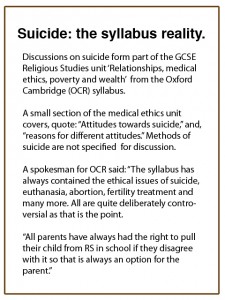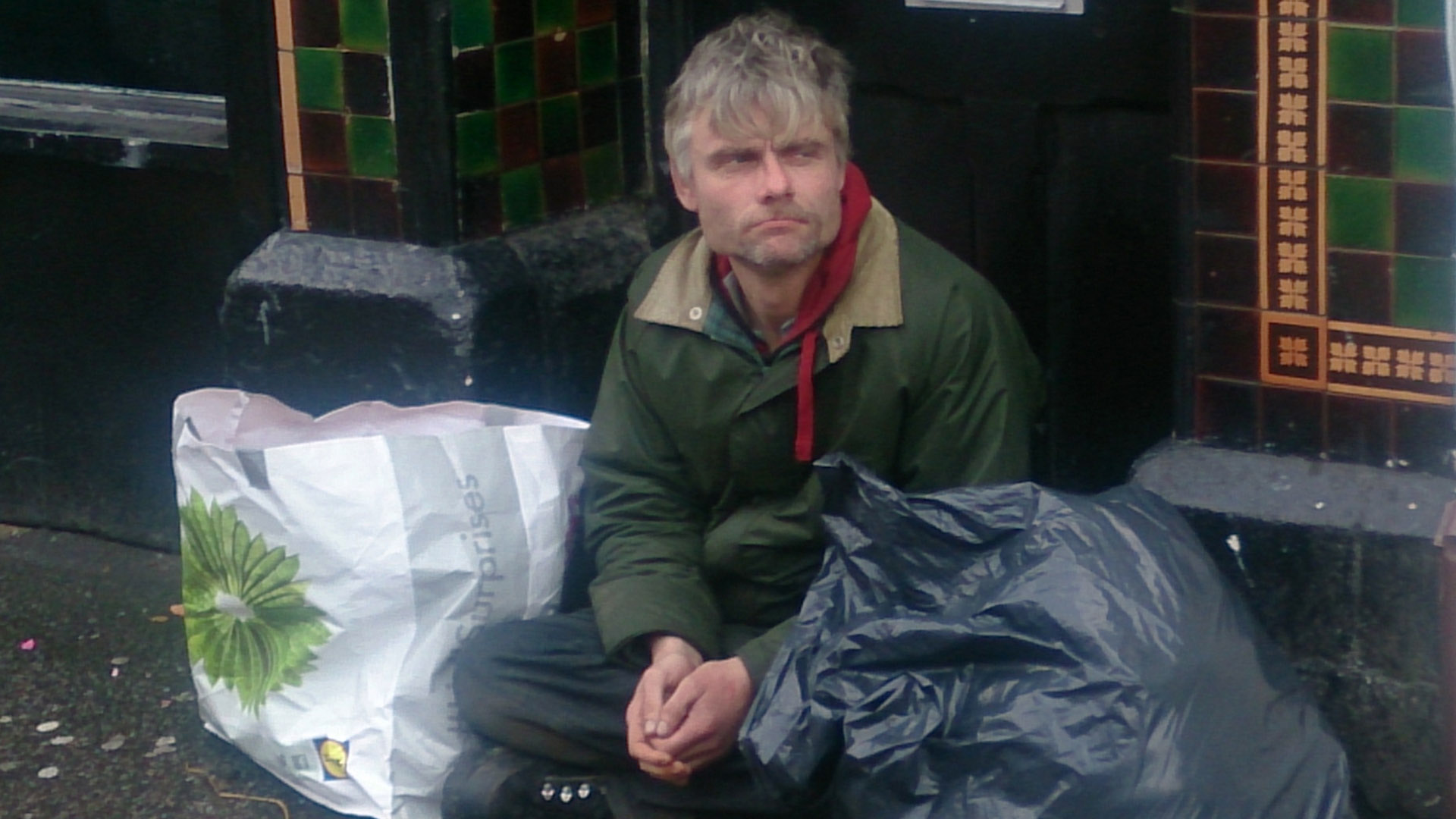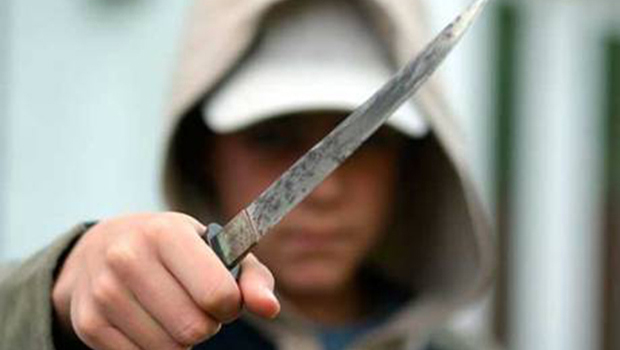On Wednesday, 15 February, the Bournemouth Echo ran a front page story headlined Anger at Poole school’s ‘suicide lessons.’
In the article a mother of a child at Poole High School stated that she intended to take her daughter out of so-called ‘suicide lessons’.
The article quotes the concerned mum referring to high levels of suicide and her personal knowledge of four different incidents. She is quoted as saying she knows a pupil who was shown different techniques:
“A friend said his son did the class last year and was shown different techniques of how to commit suicide.”
“It was a sensationalist news story in which the Echo clearly did not follow suicide reporting guidelines.
“It was a one source story and they didn’t have anything to tell the other side,” she said.
Dr Luce believes the story is misleading because it does not provide balance to the concerns raised or educate the public further.
“What they have done is further stigmatise and sensationalise the issue of suicide,” she said.
Public comments published by the Echo clearly show that some readers have taken the headline at face value.
Guidelines for covering suicide stories have been produced by organisations including The Samaritans, WHO and MediaWise. These voluntary codes aim to give guidance to Journalists on reporting suicide.
Because there are numerous sets of guidelines, the issue is confused further. The media has no one standard, and if it did, no current organisation with the bite to uphold them.
WHO guidelines advise reporters and editors to:
- Use authentic and reliable sources
- Do not use the word ‘commit’ (as it is not a crime)
- Word headlines carefully
- Take the opportunity to educate the public about suicide
- Avoid use of the word suicide in headlines
- Avoid publishing suicide stories on the front page.
Despite Dr Luce’s criticism The Samaritans do not believe that the article broke any of their guidelines.
Claire Monger, The Samaritans Press Officer had a look at the article: “In terms of our guidelines, it doesn’t breach any guidelines.” she said.
This, she emphasised, was because the story was about the discussion of suicide in school and not a specific suicide incident.
Andy Martin, Deputy Editor of the Echo, responded to the claim of sensationalism: “This is a legitimate and balanced story arising from the mother who approached us with her concerns.
“We are always very careful about how we treat sensitive subjects and this case is no exception,” he said.
According to a 2009-2013 NHS Dorset consultation on suicide prevention, only 6 per cent of journalists have received training in how to cover suicide and 29% are aware of existing guidance on the reporting of suicidal behavior.
The report refers to evidence that poor reporting of suicide can lead to copycat incidents and cause stress to the bereaved.
Fan Heathfield, Deputy head at Poole high school, declined to give any comment other than: “We have been teaching the subject here for four years.”
Dr Luce and Deputy Editor of the Echo, Andy Martin have both said they would be prepared to meet to discuss the issues raised.
Links:
Samaritans suicide media guidelines
WHO Preventing suicide for media professionals.
NHS Dorset Report Preventing suicide










